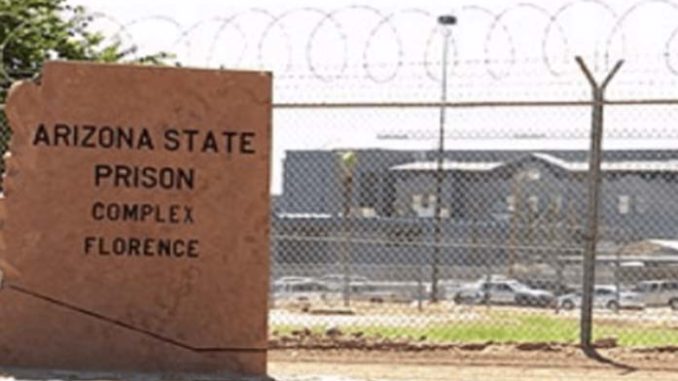
A judge abused his discretion by denying Archie Underwood’s right to represent himself at trial in a 2019 armed robbery case, prompting the Arizona Court of Appeals to overturn his convictions, void a 28-year prison sentence, and order a new trial.
Underwood faces that new trial this summer after neither Arizona Attorney General Kris Mayes nor Maricopa County Attorney Rachel Mitchell asked the Arizona Supreme Court to review the appellate decision.
A criminal defendant has a right under the U.S. and Arizona constitutions to self-representation in most instances. However, the right can be denied if the defendant deliberately engages in “serious and obstructionist misconduct,” according to the appellate opinion authored by Judge David D. Weinzweig.
“From the record presented, it appears that right was revoked because Defendant was reluctant to sign a document he had just received and did not fully understand,” Weinzweig wrote. “What is more, the constitutional right to self-representation should not be reflexively revoked once granted.”
The opinion, which was released in late March, will be formally mandated to the trial court and to Arizona Department of Corrections (ADC) later this month. Underwood, 26, will then be transferred to the Maricopa County jail to await the new trial, which must be held within 90 days of the mandate.
Court records show Underwood was indicted in March 2019 on seven felonies, including armed robbery, aggravated assault, and unlawful flight from a law enforcement vehicle stemming from an incident earlier that month involving a car stolen at gunpoint.
The thief fled from police during a nearly 40-minute high-speed chase which ended when the stolen vehicle crashed into several motorists. Underwood was found at the wheel.
Raymond Kimble was appointed as Underwood’s defense attorney, but Underwood later invoked his right to represent himself. A Maricopa County judge initially granted the request but ordered Kimble to serve as advisory counsel.
Yet just 27 minutes later, the judge reversed himself when Underwood declined to sign a lengthy form about the status of the case, including expected interviews, plea negotiations, the anticipated length of the trial, the anticipated number of witnesses, jury instructions, and anticipated pretrial motions.
Public records show Underwood had not been involved in preparing the form and did not want to sign what he considered to be a “contract” without better understanding it.
The judge, however, considered Underwood’s actions a failure “to follow direction of the Court.” Kimble was then redesignated as attorney of record and he served as defense counsel during the September 2021 jury trial.
Underwood was convicted of all seven counts and sentenced to prison for nearly three decades. His earliest release date would have been in March 2043, according to the ADC website.
But on appeal, Damon Rossi of the Maricopa County Public Defender’s Office argued Underwood’s refusal to sign the form with less than 30 minutes to review it was not serious nor obstructionist misconduct. Rossi also argued the judge did not undertake reasonable efforts to see if Underwood would eventually sign the form.
It was an argument the Court of Appeals agreed with in the unanimous opinion in which Judge Randall M. Howe and Judge D. Steven Williams joined with Weinzweig.
“The court offered no warnings here. Nor did it pursue any less severe means to gain compliance,” Weinzweig wrote. “At a minimum, Defendant should have had a chance to carefully review the document before his constitutional right was revoked for not signing it.”
Because Underwood did not engage in serious nor obstructionist misconduct, he was entitled to have represented himself at trial, the opinion noted.
Once the mandate is issued, a new trial date will be announced. At that time, the Maricopa County Attorney’s Office must decide whether it intends to retry Underwood on all seven counts.
One factor which will likely play into that decision is Underwood’s criminal history as well as his misconduct while in prison.
Underwood was sentenced to prison in 2016 for two low-level felonies. ADC classified him at the time to the lowest custody risk and internal risk. Then while still in prison, Underwood was convicted in 2017 of another felony which added more time to his prison stay.
A few weeks later, he was accused of assaulting an ADC staff member. The assault led to Underwood’s reclassification as a maximum custody risk and highest internal risk.
There is no record of Underwood being prosecuted for the assault, but there are records of another 20 disciplinary infractions which kept him on restricted movements within ADC until his release in December 2018.
Less than three months later, Underwood was back in jail to await trial in the armed robbery case.
His conduct in prison on that case has not mellowed, with ADC records showing Underwood has incurred disciplinary infractions for obstructing staff as well as disobeying an order. He also had an infraction in March for fighting.
